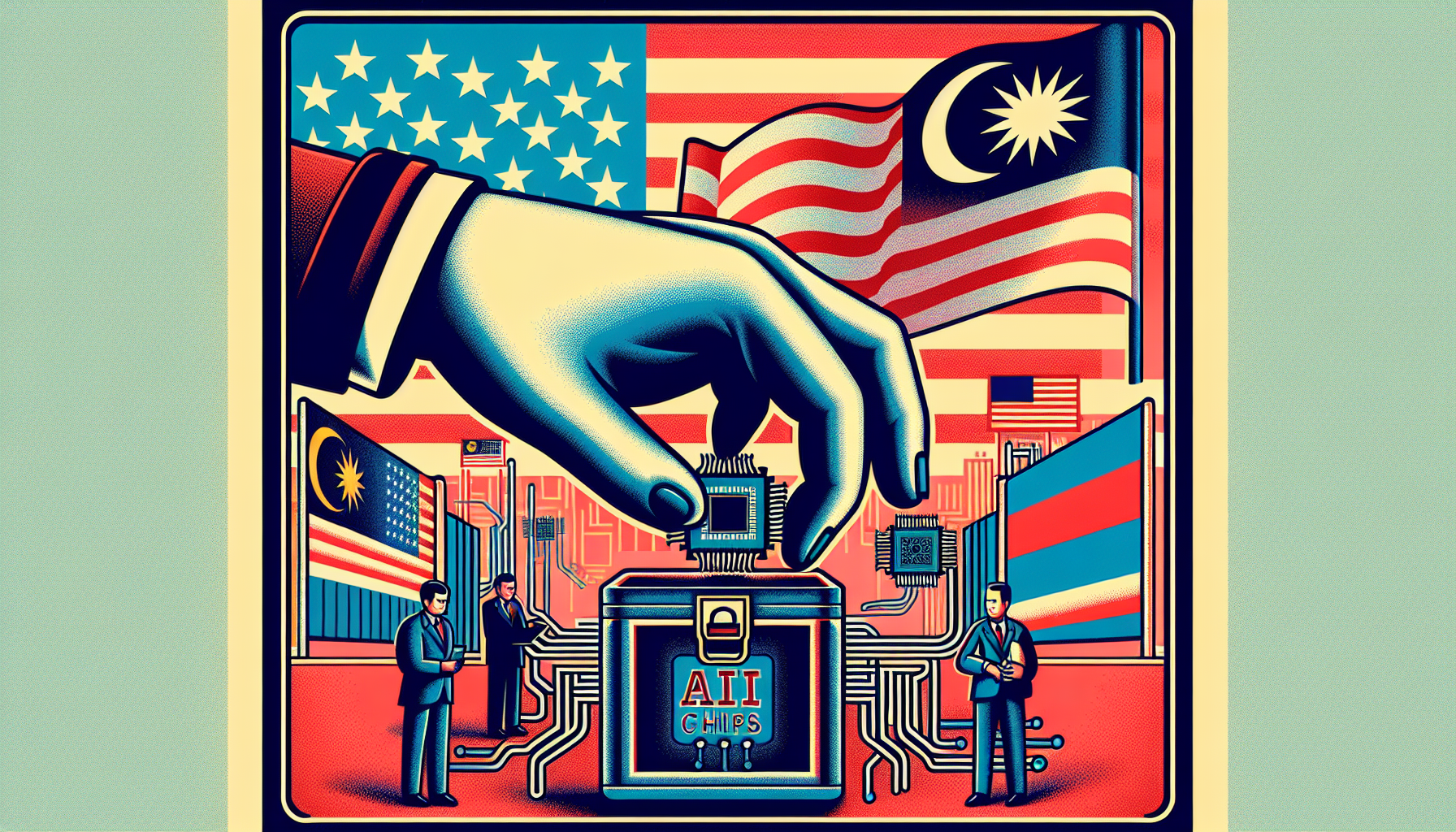The United States is taking new steps to limit the export of advanced artificial intelligence (AI) chips to Malaysia and Thailand. This decision is not only about international trade, but about managing powerful technology and shaping the future of global security and industry.
Why These Restrictions Are Happening
For years, the U.S. government has worried that China might gain access to advanced AI chips, which could boost its military and technological abilities. To prevent this, there are already strict rules stopping China from directly buying the most powerful chips, like those made by Nvidia.
However, there are concerns that China has found ways to get around these rules. Some American officials believe that China is buying chips from other countries in Southeast Asia, particularly Malaysia and Thailand. These countries are important in the global technology network, acting as key points for assembling and distributing chips. By sending chips to these countries, then on to China, it is possible for restricted technology to end up in the wrong hands.
What the U.S. Plans to Do
The U.S. Department of Commerce is preparing a new rule to address these concerns. The aim is clear: make it much harder for advanced AI chips to reach China by way of Malaysia and Thailand. This means there will soon be tighter restrictions on shipping certain types of chips to these countries.
Yet, the U.S. is moving carefully. Many American companies, as well as firms from allied countries, rely on Malaysia and Thailand for essential parts of their own supply chains—especially for packaging and assembling chips. Because of this, the rules will likely include temporary waivers and exemptions. These will allow certain shipments to continue for a limited time and include special permissions for supply chain operations that cannot be easily moved elsewhere.
The Bigger Picture
This move is part of a larger U.S. strategy to maintain control over the world’s most advanced technologies. Earlier efforts—known as the “AI diffusion rule”—aimed to prevent sensitive AI technologies from spreading too widely, especially to countries that might use them in ways the U.S. opposes.
The new restrictions are the first formal step towards updating these controls. They do not replace the existing rules, but rather expand them. The focus is clearly on protecting national security and upholding commitments to international allies. In the future, these new rules could be expanded to even more countries if similar concerns arise.
The Impact on Malaysia, Thailand, and Beyond
Malaysia and Thailand are not just stops along the trade route—they are vital centers in the world of semiconductors. Malaysia, in particular, has recently increased its imports of high-end chips and is attracting major investments in advanced technology, including large data centers built by global companies such as Oracle.
The planned restrictions could slow this momentum. Companies that depend on the flow of technology and investment in the region may face new hurdles. However, the U.S. government recognizes these risks and is working to limit the impact on firms with major operations in Malaysia and Thailand. By offering time-limited exemptions and waivers for essential processes, the U.S. hopes to strike a balance between protecting technology and supporting economic stability.
Looking Forward
The world is entering a new era where the control of technology is as important as its creation. The U.S. decision to restrict AI chip exports to Malaysia and Thailand is a signal to the rest of the world: the rules of global trade may change as nations seek to secure their future.
As these new measures are put in place, the entire landscape of international business and technology could shift. Companies, countries, and individuals will watch closely, knowing that decisions made today may shape the balance of power and progress for years to come.

Leave a Reply